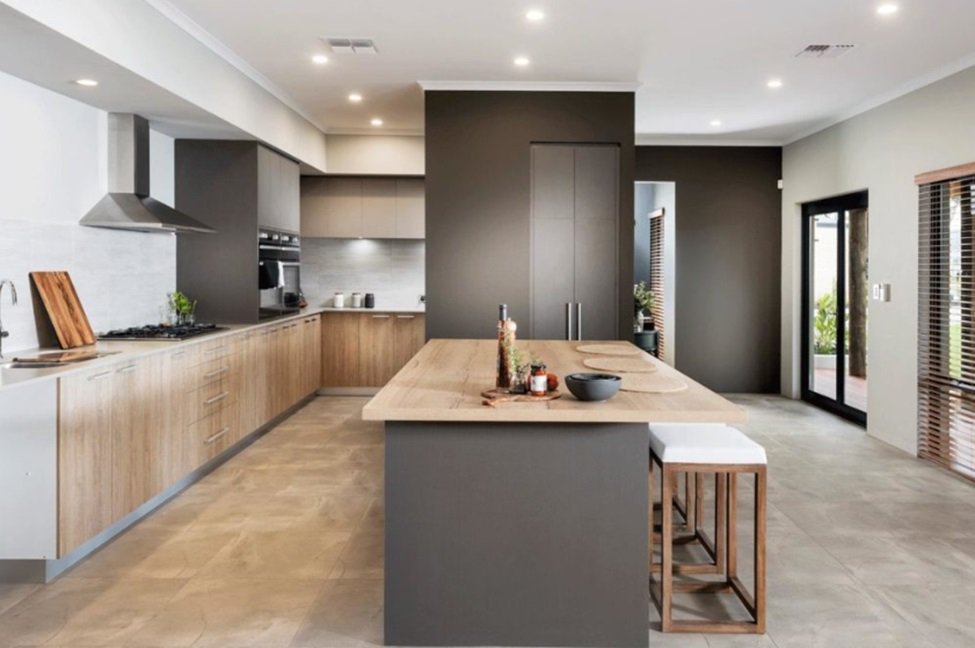Introduction
In the realm of kitchen design, the benchtop stands as a focal point, combining functionality with aesthetic appeal. For homeowners in New Zealand, where the kitchen serves as the heart of the home, selecting the right kitchen benchtops in NZ is essential. Quality and durability are paramount considerations, ensuring that the benchtop not only enhances the visual appeal of the space but also withstands the rigours of daily use. In this comprehensive guide, we delve into the hallmarks of quality and durability that define kitchen benchtops, exploring materials, construction, and maintenance considerations.
The Importance of Quality Benchtops
1. Enhancing Aesthetics
Kitchen benchtops play a significant role in defining the overall aesthetics of the space. Whether it’s a sleek and modern design or a more traditional and rustic look, the choice of benchtop material sets the tone for the entire kitchen. Quality benchtops elevate the visual appeal of the space, creating a cohesive and inviting atmosphere.
2. Functional Work Surface
Beyond aesthetics, benchtops serve as functional work surfaces in the kitchen. From meal preparation to serving and cleanup, the benchtop is where many daily activities take place. A quality benchtop provides a durable and stable surface that can withstand the demands of everyday use, making cooking and mealtime routines more efficient and enjoyable.
Exploring Benchtop Materials
1. Granite
Granite is a popular choice for kitchen benchtops in NZ, prized for its durability and timeless beauty. With its natural stone composition, each slab of granite is unique, adding character and elegance to the kitchen. Granite benchtops are heat-resistant, scratch-resistant, and easy to clean, making them ideal for busy households.
2. Quartz
Quartz benchtops offer the perfect blend of durability and versatility. Engineered from natural quartz crystals and resin binders, quartz benchtops are non-porous, stain-resistant, and exceptionally hard-wearing. Available in a wide range of colours and patterns, quartz benchtops allow for customization to suit any kitchen style.
3. Marble
Marble benchtops exude luxury and sophistication, making them a coveted choice for high-end kitchens. While marble is softer and more prone to staining than granite or quartz, its distinctive veining and smooth surface create a timeless elegance that adds a touch of class to any kitchen design.
4. Laminate
Laminate benchtops offer an affordable and versatile option for budget-conscious homeowners. With advancements in technology, laminate benchtops now mimic the look of natural stone and timber at a fraction of the cost. Easy to clean and available in a wide range of colours and finishes, laminate benchtops provide a practical and stylish solution for modern kitchens.
Durability Considerations
1. Resistance to Heat and Stains
Durability is a key consideration when selecting kitchen benchtops in NZ. The benchtop material should be resistant to heat, allowing for the placement of hot pots and pans without damage. Additionally, resistance to stains ensures that spills and splatters can be easily wiped away, maintaining the pristine appearance of the benchtop.
2. Scratch Resistance
Scratch resistance is another important factor, especially in high-traffic areas of the kitchen. Quality benchtop materials, such as granite and quartz, are highly resistant to scratches from knives, utensils, and other kitchen tools. This ensures that the benchtop retains its smooth and flawless appearance over time.
3. Longevity and Maintenance
Investing in a quality benchtop is an investment in the longevity of the kitchen. A durable benchtop material, coupled with proper maintenance and care, can withstand years of use without showing signs of wear and tear. Regular cleaning and occasional sealing, depending on the material, are essential for preserving the benchtop’s appearance and performance.
Maintenance Tips for Longevity
1. Regular Cleaning
Regular cleaning is essential for maintaining the appearance and hygiene of kitchen benchtops. Use mild soap and warm water to clean spills and stains promptly. Avoid abrasive cleaners or scouring pads that can scratch the surface of the benchtop.
2. Sealing (For Porous Materials)
For porous benchtop materials such as granite and marble, periodic sealing is recommended to protect against stains and moisture penetration. Follow the manufacturer’s guidelines for sealing frequency and use a quality sealer to ensure maximum protection.
3. Avoiding Harsh Chemicals
Avoid using harsh chemicals or abrasive cleaners on kitchen benchtops, as they can damage the surface and compromise the integrity of the material. Opt for gentle, non-abrasive cleaners that are specifically formulated for the type of benchtop material.
Conclusion
Quality and durability are non-negotiable when it comes to selecting kitchen benchtops in NZ. The benchtop serves as a functional centrepiece of the kitchen, providing a versatile work surface that must withstand the demands of daily use. By choosing materials known for their durability, resistance to heat and stains, and longevity, homeowners can ensure that their kitchen benchtops not only enhance the aesthetics of the space but also stand the test of time. With proper maintenance and care, a quality benchtop becomes not only a practical asset but also a lasting investment in the beauty and functionality of the kitchen.

